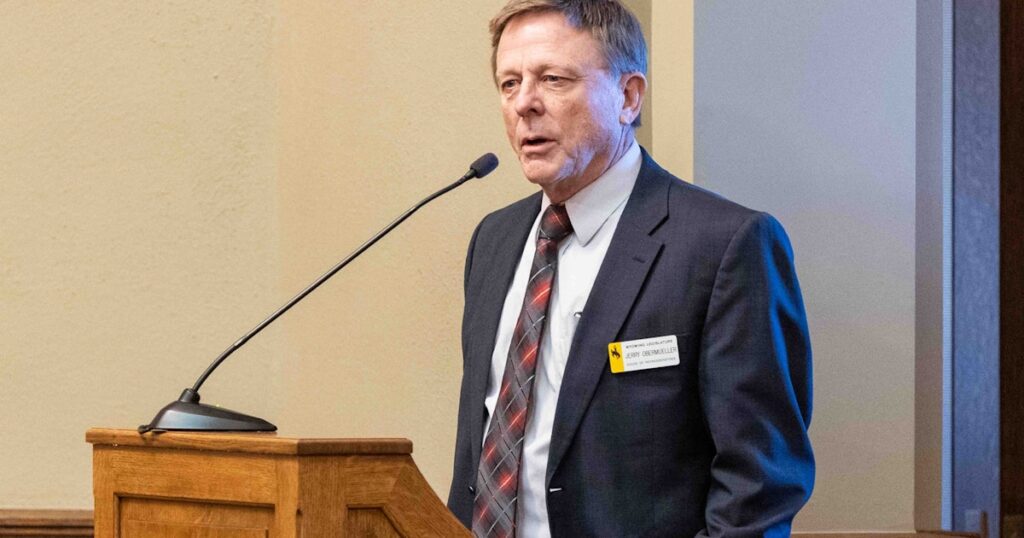A few blocks southeast of the Wyoming State Capitol is a well-functioning parochial school founded in 1892, just two years after the state's founding. My wife and her brother attended that school in the 1950s and her 60s.
Her family couldn't afford to pay tuition, but all four children went to college anyway, funded by donations from lay members of the church.
Such schools maintain a respectful distance from government and rely on the separation of church and state to maintain their independence. This separation is enshrined in the Wyoming Constitution for good reason.
As a result, throughout Wyoming's 133-year history as a state, churches have flourished with privately funded school facilities and privately funded scholarships for low-income families.
But now that separation is broken, Wyoming's private and parochial schools will be in even more trouble.
This year, Congress passed legislation creating a new program to provide public funding to private and parochial schools. As someone who grew up in the church and remains in the church, I believe this is an example of how government “aid” can actually cause harm.
Public funding for private education hurts church members by reducing their personal motivation and corporate responsibility.
It's painful when schools that have been operating successfully for more than a century find themselves in a situation where they have to accept government funding to stay competitive.
As new facilities are built, staff sizes expand, and dependence on the government becomes established, the loss of autonomy becomes a huge blow.
The passed bill would allow some families in Wyoming to receive $6,000 per student to help pay tuition at private and parochial schools that have historically relied on loyal members' donations. become able to.
Who will receive this money? Schools in the state's most populous areas, like Cheyenne and Casper, will get the lion's share because of the capacity of existing and planned facilities.
Note that the cost of public education is only slightly lower because the funding does not actually “follow the child” but is primarily based on number of teachers, classroom space, bus service, and special education. need to do it. In other words, ESA is an additional cost, not a cost reduction as some claim.
Government funding for both public and private education may seem to create competition, but as with any organization, there is one purpose, one philosophy. , there is only one direction.
In the long run, governments, like other businesses, do not compete with themselves. When governments invest money, “competition” is always subject to the constraints that governments set to achieve their objectives.
This new “Education Savings Account” program is being created at a time when church attendance is declining and commitment to the church's mission is waning. In this moment of perceived weakness, some churches are clearly looking to government to solve spiritual problems.
We all know that the government winds that blow in favor of the church today can blow you away tomorrow, especially if you make yourself vulnerable.
“Education Savings Accounts” are that vulnerability. These accounts are not a “wall of separation,” as proponents suggest, but a mechanism to transfer money from the state treasury to the fundraising plate, the largest church fundraiser in Wyoming history.
Forget about the next church bake sale to support schools.
Today, the church must fight hard to protect the wall of separation between church and state, not to invite the state in. Once government funds enter the walls of the church, the church's ability to speak independently and critically against the government will be lost. .
Years from now, when people in Wyoming ask when the state started intervening and usurping authority from families and churches, they will look back to 2024.
It was then that the Wyoming state legislature broke through the wall of separation of church and state that had protected the entire church for 133 years.
Representative Jerry Obermuller
Wyoming House District 56


